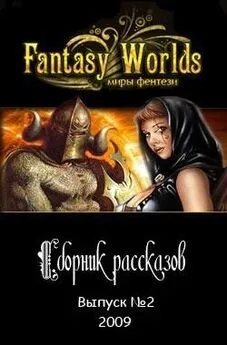Пользователь - WORLDS END
- Название:WORLDS END
- Автор:
- Жанр:
- Издательство:неизвестно
- Год:неизвестен
- ISBN:нет данных
- Рейтинг:
- Избранное:Добавить в избранное
-
Отзывы:
-
Ваша оценка:
Пользователь - WORLDS END краткое содержание
WORLDS END - читать онлайн бесплатно полную версию (весь текст целиком)
Интервал:
Закладка:
The time came when Robbie took Esther for a long drive and told her about the mysterious woman in France, the artists' model who had been painted in the nude by several men - a strange kind of promiscuity, wholly outside the possibilities of Newcastle, which in its heart was still a Puritan village. There was a child, but the woman refused to marry him and wreck his life. He had ended the unhappy affair, which was then about five years old; he had done so because he saw it preyed upon his father's mind, it could not possibly be fitted into the lessons imparted to the men's Bible class. Robbie would ask Esther to marry him, but only after she knew about this situation, and understood that he had a son and would not disown him.
The two families were working busily to make this match. Did the president of Budd's give his friend, the president of the First National Bank, some hint of the problem? Or did the latter guess what might have happened to a handsome and wealthy young businessman in Paris? Anyhow, Esther's father had a talk with her, of a sort unusual in Puritan New England. He told her the facts of life as concerning future husbands. Among the so-called "eligible" men of the town, those slightly older than herself and able to support her in the position to which she had been accustomed, she would have difficulty in finding one who had not had to do with some woman. The difference between Robbie Budd and most others was that they didn't consider it necessary to tell their future brides about the wild oats they had sown.
Esther asked for time to think all this over, and in the end she and Robbie were married. It had been thirteen years now, and they had three children, and Esther was as near to happiness as any of the "young matrons" she knew. Robbie played golf while his wife went to church, and he drank more liquor than she considered wise; but he was indifferent to the charms of the country club's seductresses, he let her have her way entirely with the children, and he gave her more money than she had use for. On the whole she could count herself a fortunate wife.
But now came this one wild oat of her husband, to be transplanted into her garden and to grow there. She was compelled to face the circumstances which had brought this about. If Lanny was going into an army, it obviously ought to be the American army; and if he came to America, and was denied his father's home, that would be a repudiation and an affront. To say that Robbie had had a previous marriage in France was one of those conventional lies that were hardly lies at all. Women would smile behind their fans, and whisper; but after all there has to be a statute of limitations on scandals.
IV
So Esther was standing at the top of the white-paneled staircase with the grandfather's clock behind her. She was tall and rather slender; she held herself erect, and was quiet and grave in manner. She had straight brown hair, drawn back from a high forehead in defiance of fashion's edicts. Her nose was a little too long and thin, but the rest of her features were regular and her smile kindly. Her brown eyes appraised Lanny, and she kissed him on the cheek. She had made up her just mind that she was going to treat him exactly like her own children, and Robbie had told Lanny that he was to call her "Mother."
She took him into her sitting room to get acquainted. He liked to talk, and was eager and friendly about it. He had been on a steamship which had been in peril of the submarines; he told how the passengers had behaved when they had struck a floating ice cake. He had been in London when it was bombed, and had a bit of shrapnel which had come through the window of a hotel room. (Of course he didn't say who had been in that room with him.) Esther, listening and watching, decided that he was intelligent, and if anything went wrong it could be explained to him. The load upon her mind grew lighter.
She took him to his room, which was in the rear. It was small, but had its own bath, and was alongside the rooms of her two boys. The walls were of pale blue, and the blankets on the single bed were the same. The rug in front of it was made by winding a long soft rope of braided rags into a spiral; his new mother explained that this was a "round-rug," and was an antique. She showed him the "highboy" in which he was to keep his shirts and such belongings. Esther knew the story of each old piece of furniture, which she had "picked up" on trips here and there in the country. Each of these adventures was important to her. As an art lover, Lanny could see that the pieces were well proportioned, and they must have been well made to be in use after a hundred years.
Outside it was warm, and the window of the room was open. There was a cherry tree close by, getting ready to bloom. A bird was singing in it with extraordinary vigor, and Lanny commented on this. Esther said it was a mocking-bird which came every season, and had arrived only a few days ago; not many of them reached New England. Lanny told about the nightingale which made its nest in the court at Bienvenu, and was treated as a member of the family. He had tried to write out all the notes it had sung, and now he would do the same for the mocking-bird. His new mother said this task would keep him busy. The mocking-bird said: "Kerchy, kerchy, kerchy, kerchy." Then it stopped and caught its breath and said: "You pay. You pay. You pay."
V
For months thereafter one of Lanny's adventures would be meeting his relatives. First came his two half-brothers, who attended a private school in town, and were taken every morning and called for in the afternoon. Robert junior was twelve, and Percy eleven; they were handsome boys, who knew how to move quietly about a well-ordered home. Of course they were curious about this new arrival from foreign parts. They took him out at once to show him their Belgian hares; also Prince, their fine German shepherd dog, which they called a "police dog," and which Lanny knew as an "Alsatian." Prince was formally introduced, and looked the newcomer over warily, smelled him thoroughly, and finally wagged his tail. That was important.
Then came Bess, who was nine; her school was near by, but she had a singing lesson that afternoon, and the chauffeur went for her after he had brought the boys. Bess was like her mother, tall for her years and slender, with the same thin nose and sober brown eyes. But she had not yet learned restraint; eagerness transformed her features. When she heard that Lanny had been where the submarines were she cried: "Oh, tell us about it!" She hung on every word, and Lanny found himself a young Marco Polo. "Oh, what did you do?" And: "What did you say?" And: "Weren't you dreadfully frightened?"
Lanny relived his own childhood through this half-sister. She asked him questions about his home and what he did there; about the war and the people he knew who had been in it; about the Christmas-card castle in Germany; about Greece, and the ruins, of which there were pictures in her school; about England, and the boat race, and the poor girl who hadn't had enough to eat, and the aviator who at this moment might be up in the air shooting at German planes with a machine gun - was it made by Budd's?
Not one detail escaped her; she would prove it if he left anything out the next time he told the story. And the teller became her hero, her idol; it was a case of love at first sight. He played the piano for her, he showed her how to dance "Dalcroze," and taught her the words of old songs. He made the French language come alive for her. The hour in the distant future when Bessie Budd first had to admit that this wonderful half-brother of hers was anything less than perfect would mark one of the tragedies of her stormy life.
VI
Comically different was Lanny's first meeting with his grandfather, Samuel Budd, which took place by appointment on the second evening after his arrival. Robbie escorted him to the old gentleman's home; impossible to subject a youth to such an ordeal alone. On the way the father told him what to do; not to talk too much, but to answer questions politely, and listen attentively. "It would have been better for me if I had always followed those rules," he said, with a trace of bitterness.
Robbie was driving and they were alone; so he could speak frankly, and it was time to do so. "People are what circumstances have made them, and they don't change very much after they are grown. Your grandfather is a stubborn person, as much so as the bricks of which his house is built, and you might as well butt your head against one as the other."
"I don't want to butt him," said the boy, both amused and worried. "Tell me exactly what to do."
"Well, the first thing is to get clear that you are the fruit of sin."
From this remark Lanny realized that the quarrel which had wrecked his mother's life and separated him from his father was still going on, and that the wounds of it were festering in Robbie's heart. "Surely," the youth protested, "he can't blame me for what happened then!"
"He will tell you about visiting the iniquity of the fathers upon the children unto the third and fourth generation."
"Who says that, Robbie?"
"It's somewhere in the Old Testament."
Lanny thought and then asked: "Just what does he want me to do?"
"He'll tell you that himself. All you have to do is to listen."
Another pause. Finally the son was moved to say: "I suppose he didn't want me to come to Newcastle?"
"He has agreed to accept you as one of his grandsons. And I think it is important that he should be made to do it."
"Well, whatever you say. I want to please you. But if you're doing it for my sake, you don't have to."
"I'm doing it for my own," said the other, grimly.
"It's been so many years, Robbie. Doesn't that count with him at all?"
"In the sight of the Lord a thousand years are as a day."
Most of the persons Lanny had met in his young life never said anything about the Lord, except as a metaphor or an expletive. Several had said in his hearing that they didn't believe any such Being existed. But now the thought came to Lanny that his father differed from these persons. Robbie believed that the Lord existed, and he didn't like Him.
VII
The president of Budd Gunmakers Corporation had been born in a red brick mansion on the residence boulevard which skirted the edge of Newcastle. He had lived in it all his life, and meant to die in it, regardless of automobiles, country clubs, and other changes of fashion. His butler had been his father's butler, and wasn't going to be changed, even though he was becoming tottery. There were electric lights in the house, but they were hung in old chandeliers. The hand-carved French walnut bookcases were oiled and polished until they shone, and behind their glass doors Lanny caught glimpses of books which he would have liked to examine. He knew this was a very old mansion, and that political as well as business history had been made in it; but it seemed strangely ugly and depressing.
The master was in his study, the ancient butler said, and Robbie led his son at once to the room. At a desk absorbed in some papers sat a man of seventy, solidly built and heavy, as if he did not exercise; partly bald, and having a considerable tuft of whitish gray hair underneath his chin, a style which Lanny had never seen before. He wore gold spectacles, and had creases between his heavy gray eyebrows, which gave him a stern expression, cultivated perhaps for business purposes. From his desk it appeared that he had carried home with him the burden of winning a war.
"Well, young man?" he said, looking up. He did not rise, and apparently didn't plan even to shake hands.
But to Lanny it seemed that a gentleman ought to shake hands with his grandfather when he met him for the first time; so he went straight to the desk and held out his hand, forcing the other to take it. "How do you do, Grandfather?" he said; and as the answer appeared to come slowly he went on: "I have heard a great deal about you, and I'm happy to meet you at last."
Читать дальшеИнтервал:
Закладка:




![Галина Романова - Лицензия на happy end [litres]](/books/1058996/galina-romanova-licenziya-na-happy-end-litres.webp)
